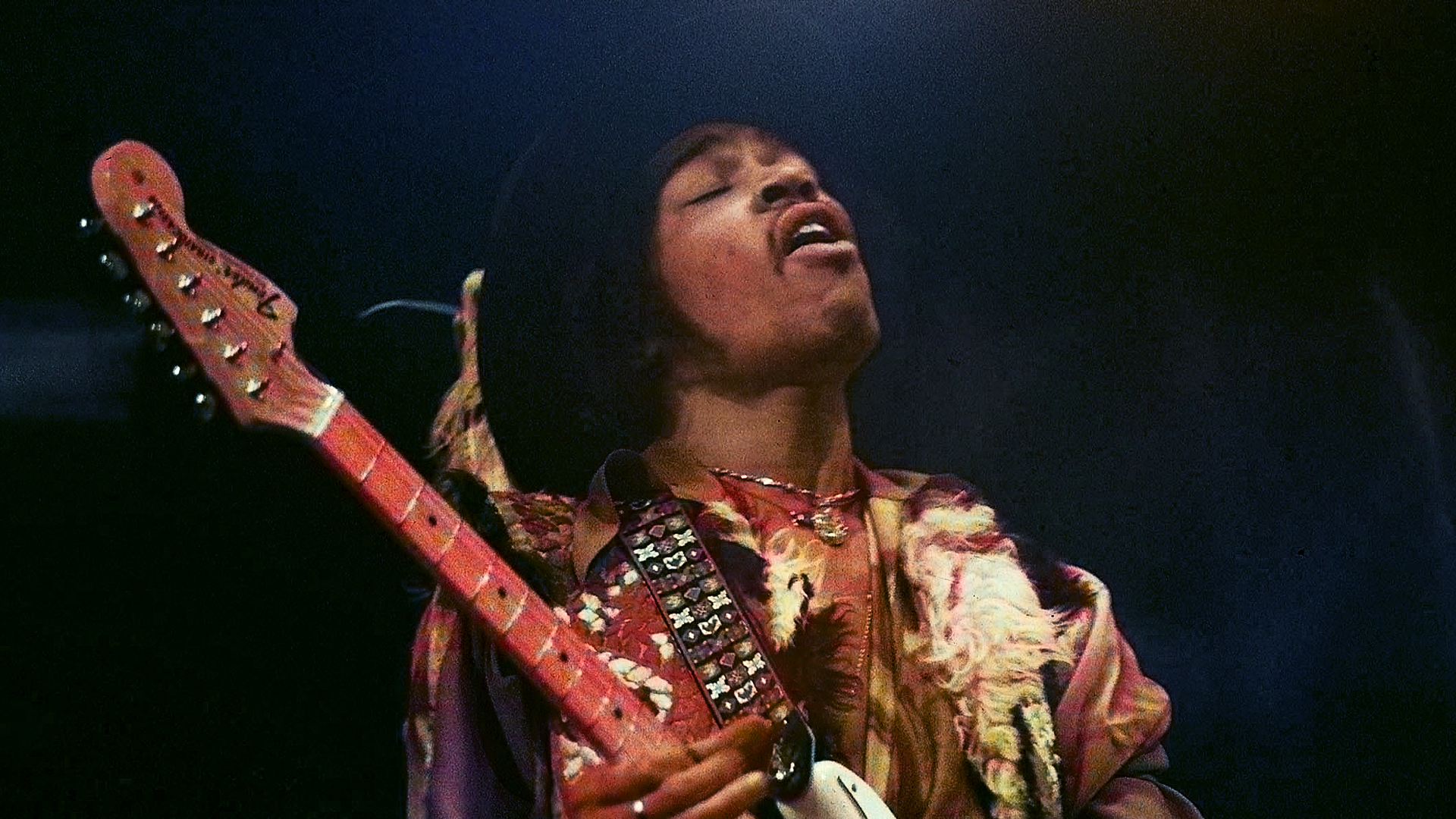“I thought maybe England didn't want me anymore. I really thought I was completely through.” Jimi Hendrix predicted the rock guitar act that would lead "mind-blowing" music into the future. He wasn't wrong
Hendrix’s comments strike up an interesting debate about what makes an artist “mind-blowing”

When Jimi Hendrix arrived on England's shores in 1966, the music scene had never seen talent like his. His fiery fretwork awed Eric Clapton and almost derailed Jeff Beck’s career.
Yet, while his abilities astonished his peers, Hendrix looked for his kicks elsewhere. Comments he made to Roy Hollingworth of England's Melody Maker magazine in the September 5, 1970 issue offer insights into what impressed Jimi while he was knocking out everyone else.
Asked what his new music would sound like, Hendrix admitted he didn't know. But he did offer his view of how rock's next stage of development would take shape and — more enticingly — who would do it.
“People like you to blow their minds," he says, "but then we are going to give them something that will blow their mind, and while it’s blown, there will be something there to fill the gap. It’s going to be a complete form of music. It will be really druggy music. It could be something on similar lines to what Pink Floyd are tackling.
"They don’t know it, you know, but people like Pink Floyd are the mad scientists of this day and age.”
As of the time of Jimi's Melody Maker interview, Pink Floyd had established themselves in the prog music scene following Syd Barrett's departure and the arrival of guitarist David Gilmour. The group had released two albums with Gilmour — 1969's More and Ummagumma — and were just one month from issuing Atom Heart Mother, the group's first album to reach number one in the U.K. The record would also secure a spot at number 55 in the U.S., Pink Floyd's highest chart placement at the time.
It's not surprising Hendrix was tuned into Floyd. Both he and they were game-changing innovators, and yet Jimi and Gilmour's musical approaches couldn't be more different. Hendrix took the flashy blues of his forebearers to new heights, ultimately paving the way for future generational talents like Eddie Van Halen, thanks to his staggering speed.
All the latest guitar news, interviews, lessons, reviews, deals and more, direct to your inbox!
Gilmour, however, was forced to adopt a different style.
“I wasn’t gifted with enormous speed on the guitar,” he recently told Rick Beato. “There were years when I was younger where I thought I could get that if I practiced enough. But it just wasn’t ever really going to happen.”

Instead, he looked to the Shadows' Hank Marvin and the sounds he seduced from his Fender Stratocaster in order to take a more lyrical approach to his guitar solos.
In fact, at the time of his Melody Maker interview, Hendrix thought his flashy style of music had become passé in England while he was off on tour in the United States.
"While I was doing my vanishing act in the States, I got this feeling that I was completely blown out of England," he told Hollingworth. "I thought they had forgotten me over here. I thought maybe they didn't want me anymore because they had a nice set of bands.
"Maybe they were saying, 'Oh yeah, we've had Hendrix, yeah, he was okay.' I really thought I was completely through here."
Obviously, that wasn't the case. But Gilmour's comments about soloing do indicate a split from the pyrotechnics that typified Hendrix's late-1960s reign, something that would rear its head again with the arrival of the early 1980s' Yngwie Malmsteen-inspired shredding insanity.
Many guitar greats seem to agree with Gilmour's point.
“At the time, everybody was going crazy about Yngwie Malmsteen," says Alex Skolnick. “I tried to keep my distance. He was doing his thing, but it wasn’t supposed to be my thing.”
Indeed, the rise of talents like Malmsteen and EVH “kind of ruined the ‘80s,” says Wolfgang Van Halen, because players were trying to outdo one another in an effort to be the next Eddie.

However, Dweezil Zappa has come to the defense of ‘shredding for shredding’s sake,’ saying: “Some people look at it like, 'Oh, that's lame. Who cares about what that skill is.' But you've got to put the time in to do it.
“There's going to be somebody that likes what that thing is. It might not always be the thing that makes you have a comfortable financial lifestyle, but if you go full forward into the thing that you love, I'm all for it.”
Either way, Hendrix — deemed by countless fans and critics alike as the world’s greatest guitarist — would have been far more impressed by someone going against the grain than those diving through arpeggios at warp speed. There's a good guitar lesson right there.
A freelance writer with a penchant for music that gets weird, Phil is a regular contributor to Prog, Guitar World, and Total Guitar magazines and is especially keen on shining a light on unknown artists. Outside of the journalism realm, you can find him writing angular riffs in progressive metal band, Prognosis, in which he slings an 8-string Strandberg Boden Original, churning that low string through a variety of tunings. He's also a published author and is currently penning his debut novel which chucks fantasy, mythology and humanity into a great big melting pot.

